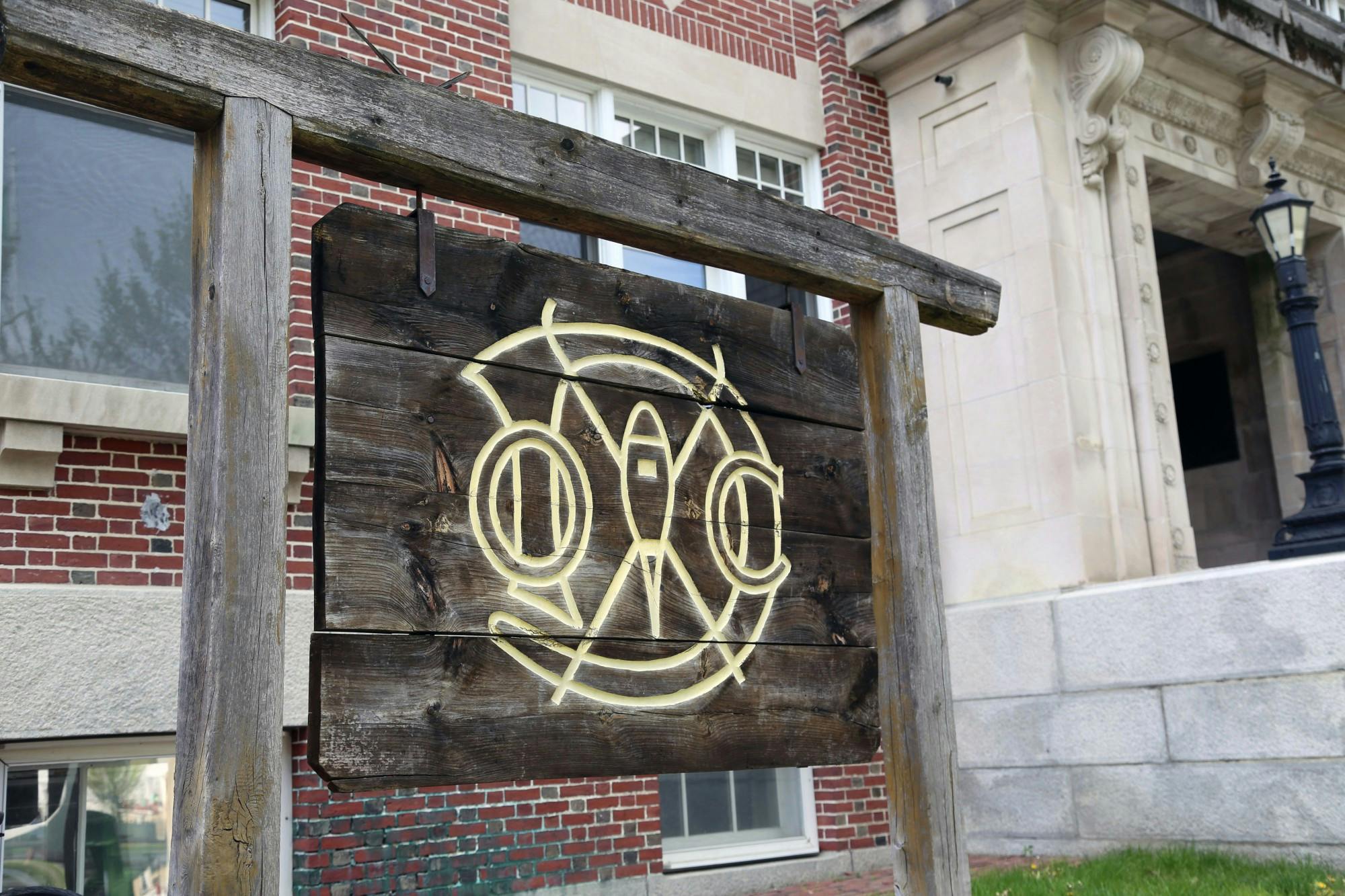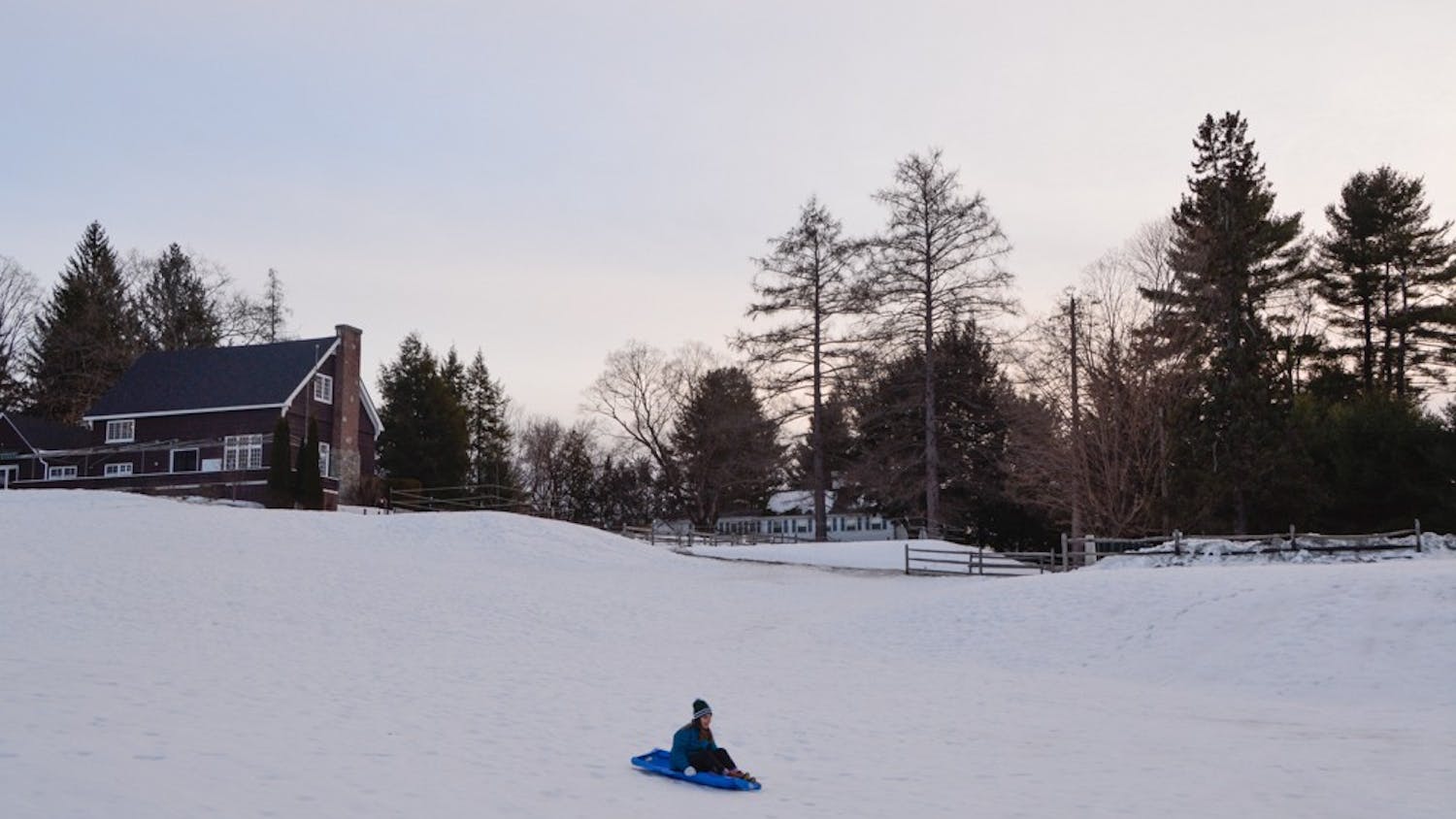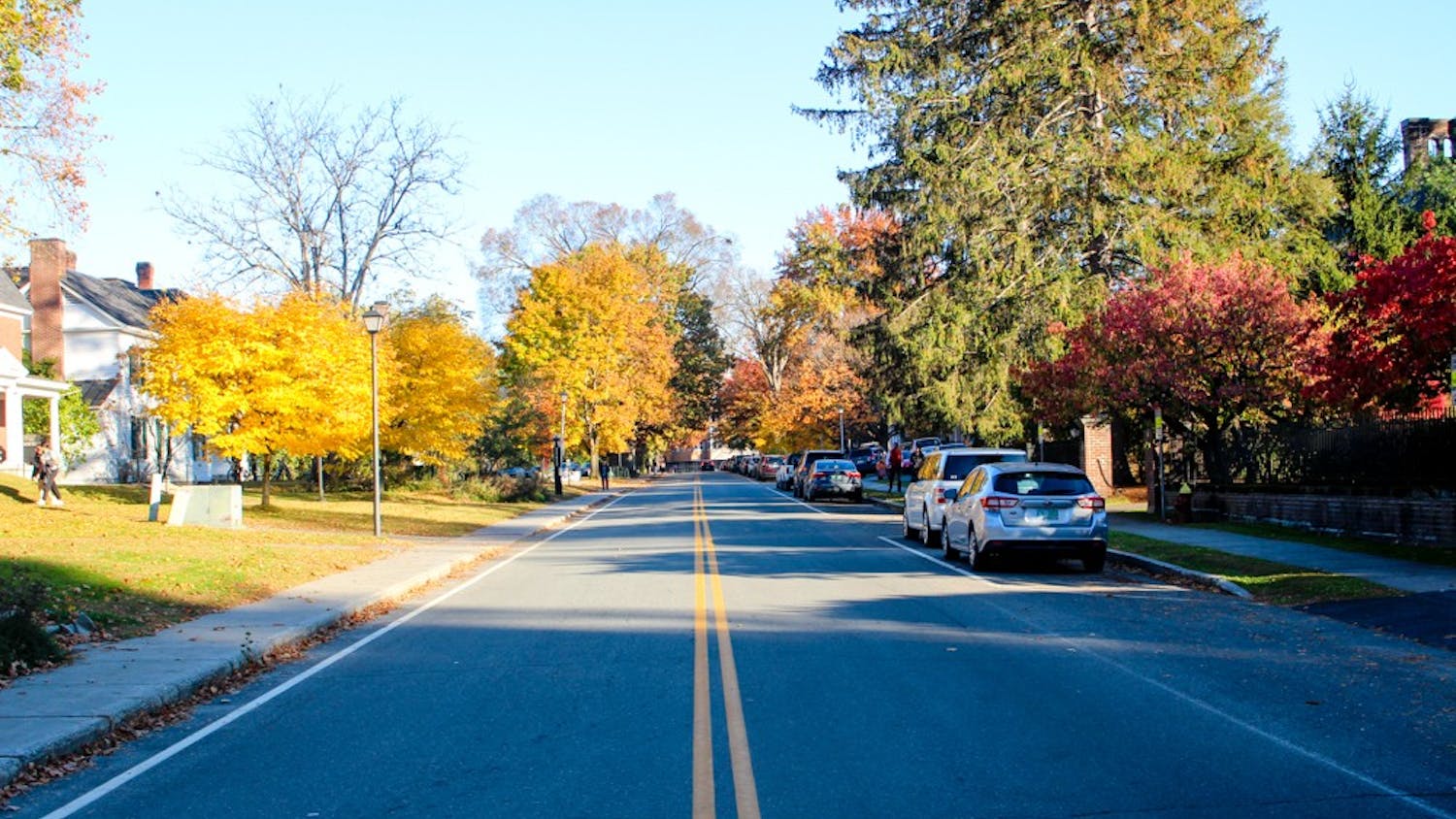This article is featured in the 2021 Spring special issue.
The Dartmouth Outing Club, the oldest and largest collegiate outing club in the nation, is facing unprecedented leadership shortages exacerbated by the pandemic.
“Normally the Outing Club operates by hand-me-down knowledge and leader skills through upperclassmen down to underclassmen,” DOC president Abby Wiseman ’22 said. “Obviously COVID-19 has impacted that because we haven’t really been able to run a lot of in-person trips in the last year.”
The DOC was founded in 1909 to promote winter sports but has since grown to encompass all outdoor recreation. Each of the organization’s subclubs — which include Bait and Bullet, Cabin and Trail, the Ledyard Canoe Club and the Mountain Biking Club, among others — are run by student leaders who are charged with planning, organizing and leading outdoor trips of around 12 students.
To become a DOC leader, students must first complete a series of courses, including First Aid and CPR, Risk Management, Group Dynamics, Outdoor Skills and Logistics, as well as meet additional skill requirements for their specific subclub.
Ledyard Canoe Club president Gab Smith ’22 said that because many qualified leaders did not have on-campus access in the fall or winter due to COVID-19, Ledyard has been hamstrung in its ability to run trips in recent terms. She added that Ledyard had already been dealing with a shortage of skilled whitewater leaders before the pandemic, but because there have not been as many trips running, less experienced club members have not had as many opportunities to improve their skills and step into leadership roles.
“Rivers go from class one to class five — we don’t technically have anyone that’s able to lead us on class four and five rivers right now,” Smith said, adding that Ledyard’s annual spring training trip, where leaders would typically teach other club members more advanced skills, did not run last year.
“Because [the trip] got canceled last spring — spring of 2020 — we weren’t able to build those people and build those skills, so we have less leadership in the club,” Smith said.
Cabin and Trail Club chair Maya Khanna ’22 explained that although the pandemic has not created as much of a shortage of leaders in Cabin and Trail as it has in some of the other DOC subclubs, it has made the leader development process more challenging.
“Some of our leader requirements just are not feasible in light of the pandemic,” Khanna said.
Leaders-in-training — called “heelers” — typically must lead an overnight cabin trip before they can become a leader in CnT, Khanna said. Additionally, leaders must complete Wilderness First Aid, which she described as a “very hands-on course.”
“With the pandemic, you obviously can't have a bigger group of people all sleeping in the cabin together,” Khanna said, “…Although what we decided to do this term is basically waive that requirement.”
Although the Outdoor Programs Office has developed a hybrid in-person and online course for Wilderness First Aid, Khanna said that less individuals have been able to complete all of their CnT leader requirements than in typical years.
CnT heeler Eliza Holmes ’24 said she has four more requirements to complete before she becomes a leader, but because the OPO caps its in-person training sessions to comply with the College’s COVID-19 guidelines, “they fill up quickly.”
Other DOC subclubs, such as the Dartmouth Mountaineering Club, Mountain Biking Club and Winter Sports Club were already dealing with a shortage of leaders before the pandemic, and have been “really hurt” over the course of the year, Wiseman said.
“[Winter Sports Club] only had two leaders approved on campus this winter, me and the other chair, so that was really hard,” Wiseman said. “We just couldn’t get enough trips out to get other leaders trained, and we’re definitely going to be struggling moving forward with that.”
Going forward, Wiseman said that the graduation of leaders in the Class of 2021 may place more pressure on current leaders and decrease the amount of high-level trips going out.
“We’re certainly going to have to build back up to where we were prior to COVID,” she added.
To alleviate the shortage of leaders and the “knowledge gap” many DOC subclubs are facing, Wiseman said she has been working with the OPO to bring in professional instructors who can train rising leaders.
According to Smith, on May 8 and 9 Ledyard hosted a swift-water rescue training with Zoar Outdoors, an independent contractor.
“We’re hoping to have skill sessions go out with the Mountaineering Club and some more with Ledyard working on leader specific skills this spring and next fall,” Wiseman said.
As a result of constraints throughout the pandemic, students now have the opportunity to step into the role of local leader — an intermediate DOC leadership position that requires less training, Wiseman said.
“[The local leader initiative] really got going last fall and allowed students to become a lower level of leader — so less requirements, but basically letting them lead trips in the area that don’t require much technical knowledge,” Wiseman said.
According to the DOC’s website, local leaders can run level one trips, which include beginner hikes, beginner snowshoe trips and winter hikes, beginner cross-country ski trips and flatwater paddling on the Connecticut River. Wiseman added that she hopes local leader trips continue after the pandemic.
Cabin and Trail local leader Daniel Lin ’23 said that the local leader position allows him to lead trips within his comfort zone.
“Because I’m a local leader, I can now lead trips within 35 minutes of driving and relatively lower level hikes and things like that,” Lin said. “But when it gets to longer trips that are a lot more mileage, or out in the wilderness … I’m perfectly content joining those trips, as opposed to leading those trips.”
Lin added that he believed the Class of 2021’s upcoming graduation will have a large impact on the club.
“Most of the people in leadership I know are seniors,” Lin said. “ … It will be interesting to see the other ’22s and ’23s who are in leadership come back and take the reins again and to see how that gap will play out.”
Kristin Chapman ’24 is an English major and Spanish minor from Rye, New York. She currently serves as the editor-in-chief and previously wrote and edited for the News section. In her free time, she enjoys reading books, running, hiking and doing yoga.




